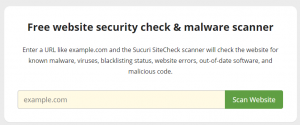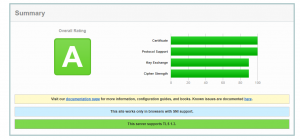Last updated on February 24th, 2021 at 05:39 am
In this article, you will learn about the top three website security audit tools you can use now.
See, security vulnerabilities are an issue most website owners struggle with within today’s internet age.
How do I know that?
Well, recently, Twitter was hacked, and the attacker scammed users thousands of dollars in one of the most daring crypto scams of all time.
And the mastermind turned out to be a kid from Florida (alleged).
Well, you might think such attacks only target big tech giants like Twitter. That is where you are wrong.
43% of cyber attacks target small businesses. And that includes your website.
Don’t believe me?
Go to your website right now and install the WordFence plugin. And you will see how many people try to login into your site all day.
The global average cost of a data breach is $3.9 million across small businesses!
That number is staggering when you consider big companies like Twitter.
For this reason, it is not enough to put in place measures to deter intruders from access your website.
What you need to do regularly is audit your security so you can get vulnerabilities before someone else does.
Why?
Because you do not know what they are going to do with that information.
Now, to help you out, here are some website security audit tools you can use now to get you started.
Top website security audit tools
#1. SUCURI Site check
If you’ve been in this blogging niche for some time now, you must have come across SUCURI.
It is one of the most popular website security audit tools.

All you have to do is copy and paste your website URL on the box provided and hit scan website.
After that, SUCURI will go through your site looking for;
- Malware
- Blacklisting status
- Injected SPAM, and
- Defacements.
Additionally, using SUCURI helps protect your website against online threats. And luckily, it works on any platform, be it WordPress, Drupal, Joomla, and Magento among other CMS.
#2. Qualys
If you have been reading our blogs, you know how we advocate any blogger to install an SSL certificate.
It not only shields your site from attacks but also boosts your chances of ranking on search engines such as Google.
But here is something you don’t know;
SSL is not 100% hack-proof, and that is why you need this audit tool known as Qualys to assess that.
How?
Well, Qualys comes with an SSL Server Test tool. What it does is run a scan of your website for SSL/TLS misconfiguration and vulnerabilities.

When you submit your hostname, Qualys does an in-depth analysis of the HTTPS:// and looks at things like expiry day, overall rating, cipher, SSL/TLS version, handshake simulation, protocol details, BEAST, among others.
When should use this tool?
Use Qualys every time you install a new SSL/TLS or whenever you make any changes to it.
#3. Quttera
Are you worried your website has malware or some vulnerabilities?
Quttera is one of the best website security audit tools to help assess that.

When you submit your website, the tool scans it for things like malicious and suspicious files, PhishTank, Safe Browsing (Google, Yandex), and goes through the Malware domain list.
Wrapping up scanning a website
There you have it, top 3 website security audit tools.
Now, these tools provide you with information. But the action you take after that is entirely up to you.
Others like SUCURI takes one step further to give suggestions on how you can patch the discovered vulnerabilities.
Also, these tools come with free versions. Of course, they may be basic, but they get the job done fast.
From here, you first need an SSL certificate. See the one that works best for you
